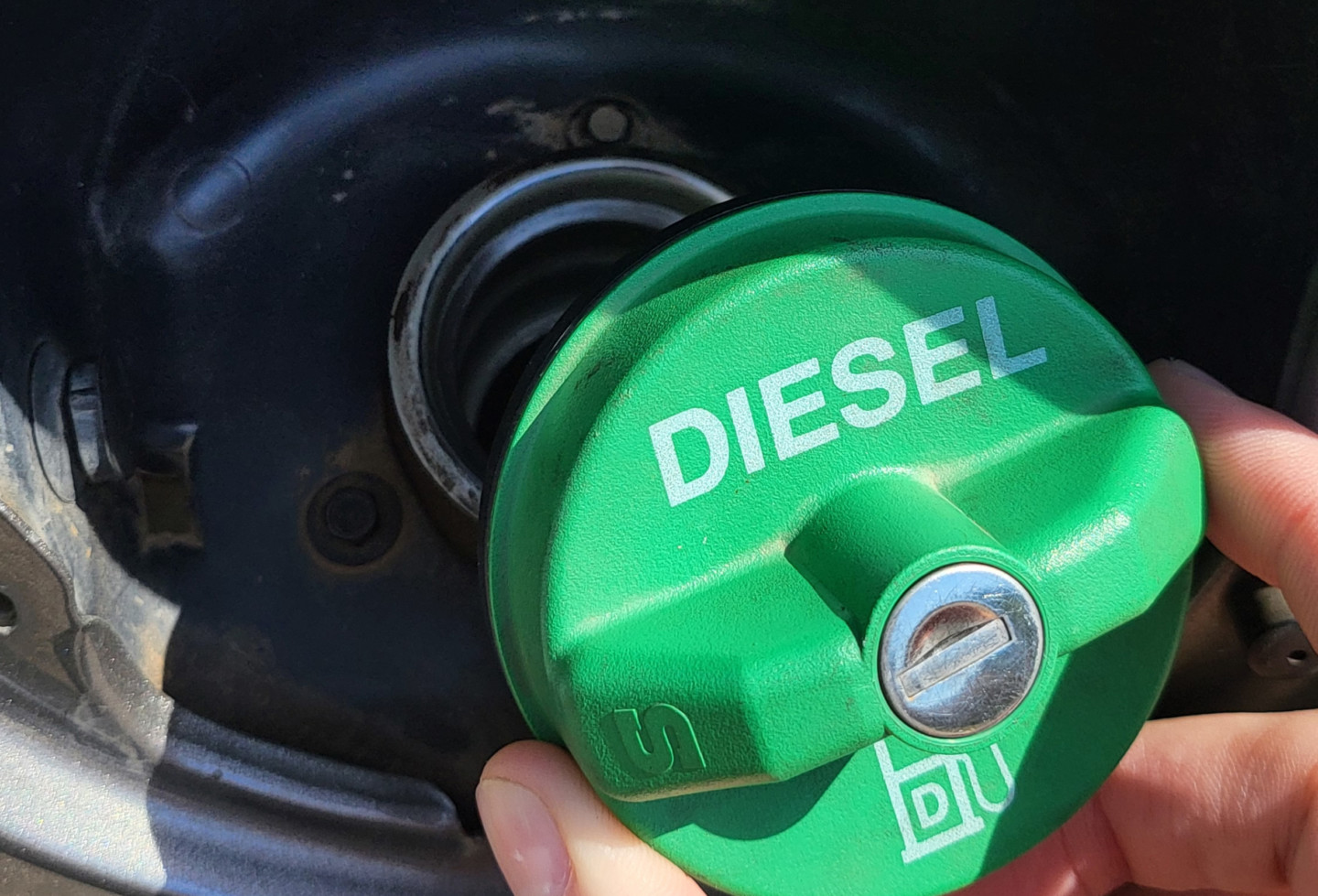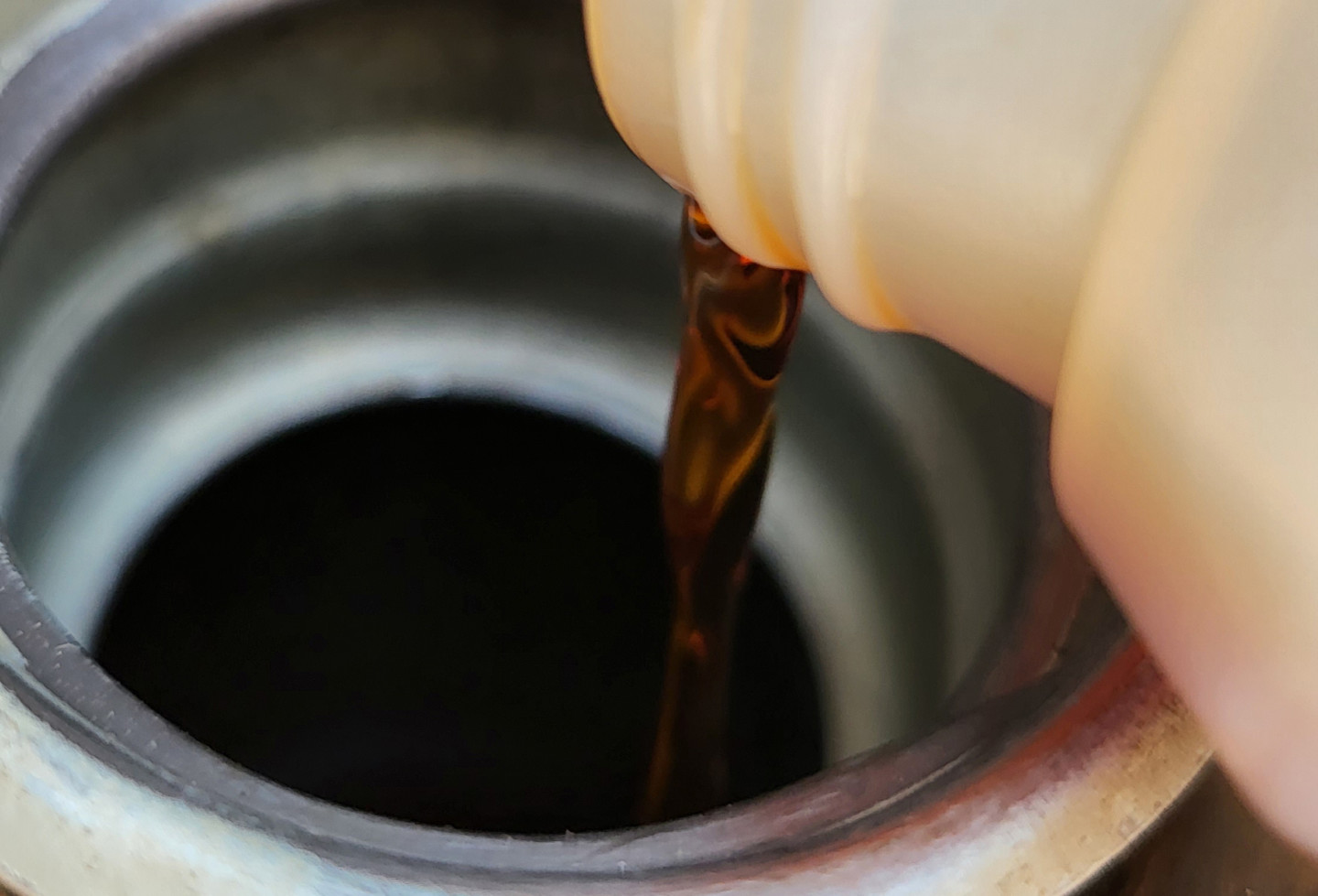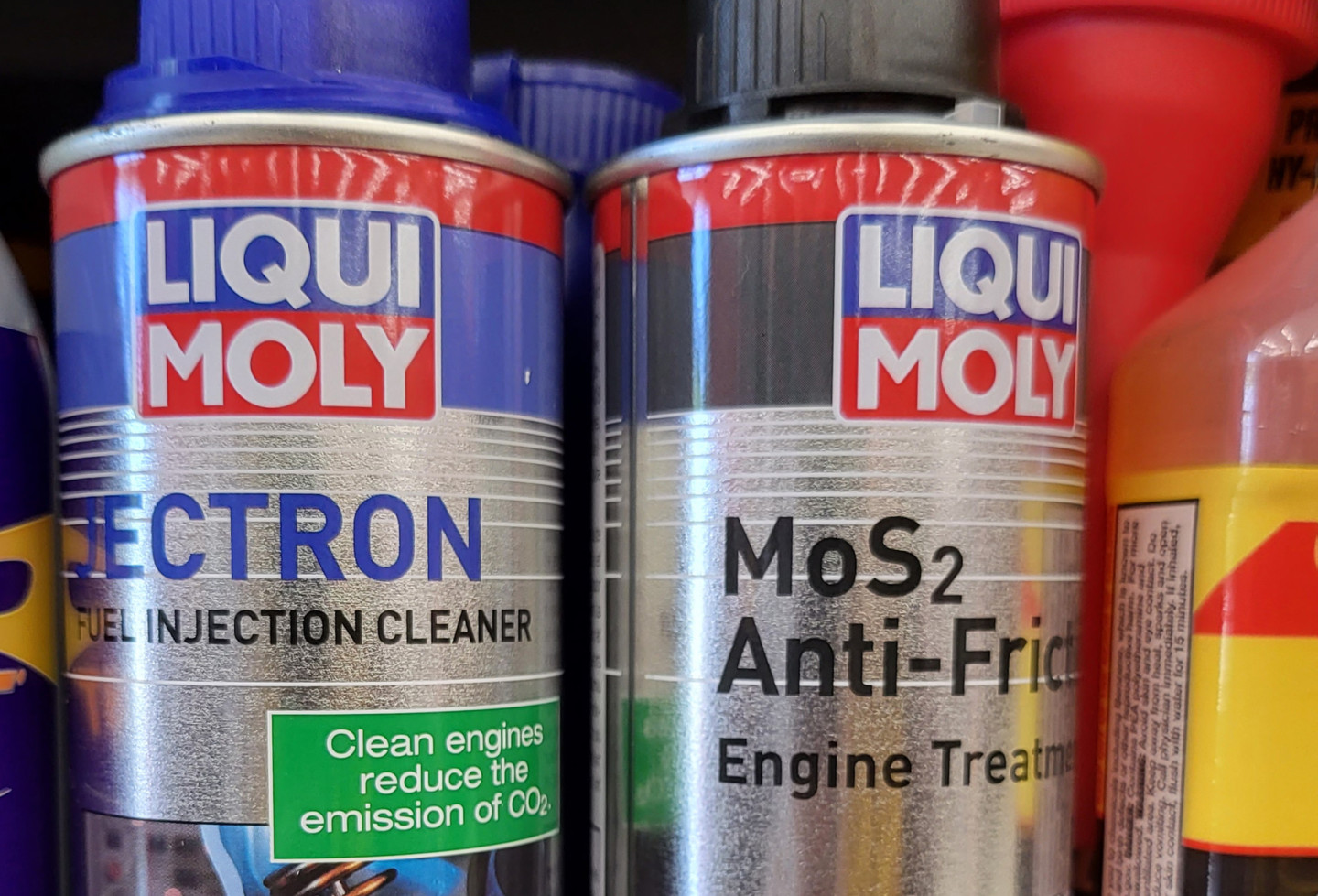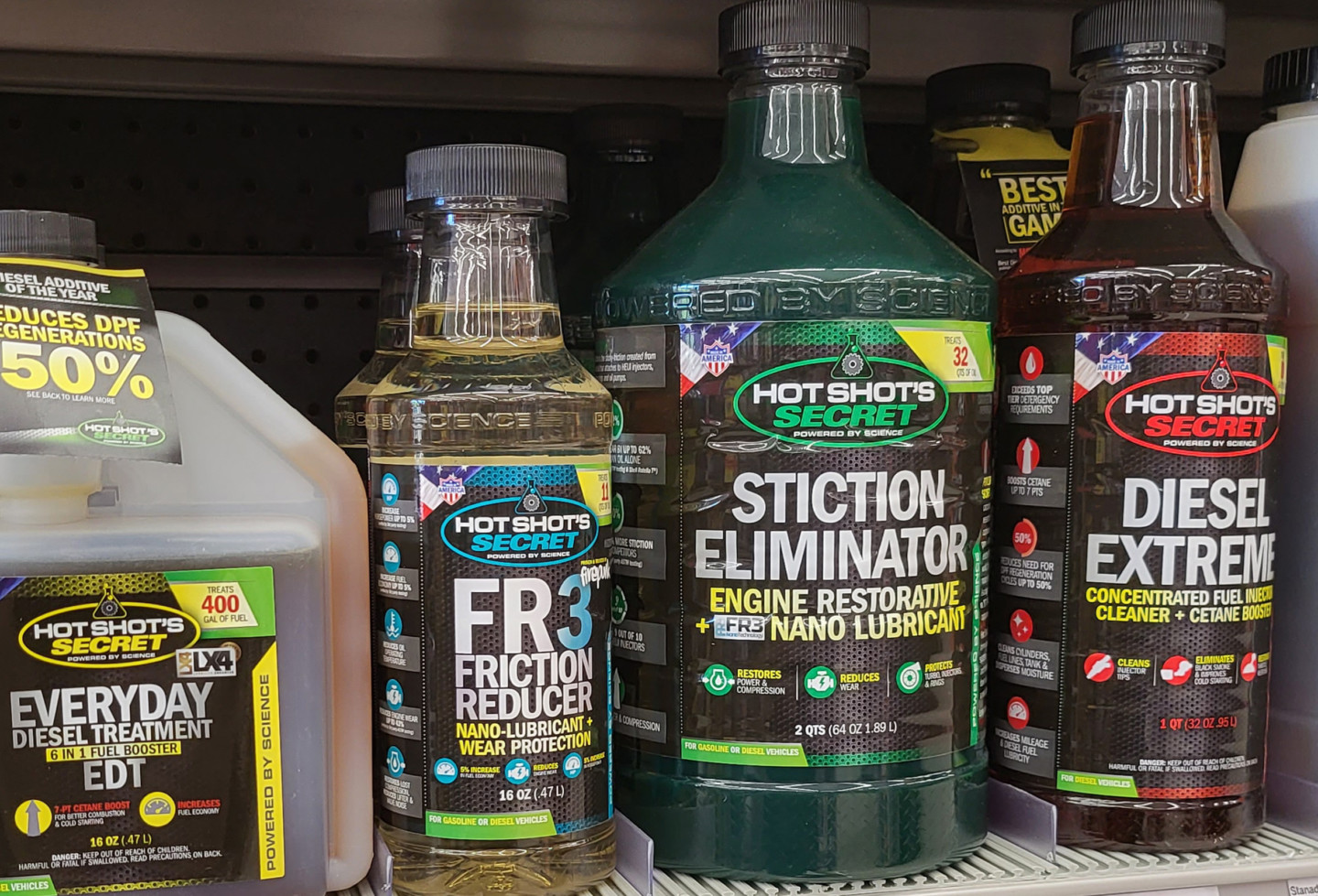If you have owned a diesel for any length of time, you have surely heard someone talking about diesel additives for fuel and oil. People often swear by these additives, saying things like, “they made the injectors quieter,” “the truck has more power,” “cold starts are easier and it has a smoother idle,” or “less black smoke,” etc. But, on the other hand, you have probably also read on forums that diesel additives are snake oil and do not do anything beneficial for your diesel engine. In an attempt to clear the air, we took to the professionals to get a few much-needed answers about the subject.

The prices at the pump are up and diesel quality is not what it used to be. So how can you combat that?
To get the low-down, we contacted a few of the best in the business regarding fuel and oil additives. We spoke to Stefan Braum, application specialist for Liqui-Moly, and Joshua Steinmetz, digital marketing manager for Hot Shot’s Secret, for all of the information in this article.
Weighing The Benefits
Diesel Army:
For starters, what are the benefits of fuel additives in a diesel?
Josh- Hot Shot’s Secret:
“If your vehicle requires diesel fuel, you’re well aware that it’s considered the hotdog water of fuels, as it has dramatically changed now that Ultra-Low-Sulfur Diesel is required. Secondly, the diesel quality can vary greatly from station to station. You could get fuel that runs great in your vehicle at one station, and down the road, your fuel economy could plummet after the next fill-up.”
“Utilizing consistently good-quality fuel is key. Adding the right additive can help dramatically by ensuring you have high-quality fuel for your engine. The cetane levels and lubricity of the fuel are generally not as tested and recommended by engine OEs, therefore can cause longevity and performance issues. The benefits of a good additive will bring the fuel back into spec for trouble-free and efficient operation.”

To use a fuel additive, you simply measure up the correct amount and pour it in when you are fueling up.
Diesel Army:
Are there more advantages to be had by combining both fuel and oil additives?
Stefan- Liqui-Moly:
“The advantage of combining is that the bottom-end, as well as the top-end of an engine, will receive maximized protection. For example, by using a friction-reducing oil additive, lower-end wear is reduced, cold start protection is increased, and lubrication film is strengthened. At the same time, using a fuel additive, injector and fuel pump wear is decreased while increased cetane values will create easy starting and smoother and more efficient engine running. Overall, this will help both engine and fuel system longevity.”
Can Diesel Additives Cure Your Ailments?
Diesel Army:
What are some common problems an oil additive can help alleviate?
Stefan – Liqui-Moly:
Various Liqui-Moly oil additives can help clean engine internals, reduce wear, and increase cold start protection. The reduced wear can also aid with lowering oil temperature and curtailing lifter noise. Fuel additives can reduce soot load and maximize the DPF life span, lessen black exhaust smoke, improve fuel pump and injector life, maximize mpg, reduce rough idling, and improve cold start.”
Diesel Army:
What are some problems the different fuel additives can help with?
Josh – Hot Shot’s Secret:
Fuel additives can fix a host of problems, including a clogged or stuck injector, water contamination, excessive smoking, and plugged fuel filters. Our Diesel Extreme is a great fuel system and injector cleaner. We offer a free tool on our website, Diagnose Your Diesel, to help people figure out what is wrong with their truck and how to fix it. That goes into detail and even dives into more issues that additives can fix.
Going The Distance
Diesel Army:
We hear mileage will improve when using additives.
Josh – Hot Shot’s Secret:
“Fuel economy and mileage should increase when using a good additive. You might only see a few tenths-of-a-mile difference, but that can add up in savings in the long term. With today’s fuel prices, even the smallest increase in fuel efficiency can mean more money in your pocket.
“Consider this: Our Everyday Diesel Treatment (EDT) has been shown to increase fuel efficiency by up to 7.3-percent in third-party testing. At roughly $15.00 to $20.00 per bottle [depending on retailer] and a suggested treatment rate of just 1 ounce for every 25 gallons of fuel, the cost per treatment comes in at $1.25. For simple math’s sake, let’s assume a diesel pickup truck averages 15 mpg and has a 25-gallon fuel tank.
“Now let’s assume EDT was added to the fuel and a five-percent increase in fuel efficiency yields an average of 15.75 mpg. Each tank would yield an additional 18.75 miles. Even after including the cost per treatment of $1.25 for each tank, you will still save $4.70 by doing nothing more than adding a single ounce of EDT to your fuel tank with each trip to the pump.”
Diesel Army:
Can additives increase the longevity of your rig?
Stefan – Liqui-Moly:
“Yes, they can. Using the correct diesel additives [both fuel and oil] with regularity, will maximize component life and achieve maximum longevity while reducing fuel and repair costs.”
Diesel Additives: The Good, The Bad, And The Ugly
By running a fuel additive, you are improving multiple aspects of the fuel, which will reduce stress on the fuel system making the engine run more efficiently. In addition, running an oil additive can clean up the engine internals, reduce wear, increase cold start protection, and quiet down engine noise. Using a fuel additive will also boost the cetane levels and increase lubrication across the fuel system. In addition, running an additive will make sure that even when “stuck” with poor-quality diesel fuel, your injection system will be protected. So even if you have a brand new rig, it would be wise to put an additive in the tank for extra piece of mind.
While diesel additives can help performance, you should never mix multiple fuel or oil additives simultaneously. Always contact the manufacturer before running two additives together because most additives are made to treat more than one issue on a diesel engine. If you are interested in running an oil or fuel additive on your rig, go to hotshotsecret.com or Liqui-Moly.com for more information.



















